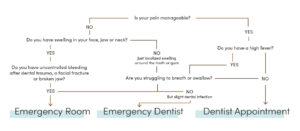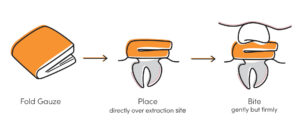Remedios caseros: Cómo matar un nervio dental expuesto

Revisado por Dr. Dennis Rollins, DDO |
Julio de 2025 - 6 min Leer
Reviewed By Dr. Dennis Rollins, DDO | Julio 2025 - 6 min Read
Si sientes dolor a causa de un nervio dental expuesto, lo primero que debes hacer es concertar una cita con un dentista. No existe una cura casera, pero hay algunos métodos que pueden ayudarte a sobrellevarlo mientras esperas esa cita.
Entre ellas figuran:
Analgésicos de venta libre
Utilice ibuprofeno o paracetamol según las indicaciones para reducir el dolor y la inflamación.
Compresas frías
Coloca una bolsa de hielo, una bolsa de guisantes congelados o un paño frío en la parte exterior de la mejilla o la boca, cerca del diente afectado. Manténgala así hasta 15 minutos seguidos, con descansos de 10 minutos entre cada uno. Esto ayudará a adormecer el dolor y a reducir la inflamación.
Enjuague con agua salada
Combina 1/2 cucharadita de sal con 8 onzas de agua tibia. Utiliza esa solución para enjuagarte suavemente la boca. Esto ayudará a limpiar la zona y a reducir las bacterias.
Material de relleno temporal
Muchas farmacias venden cera dental u otros materiales de relleno temporal, que puede utilizar para cubrir la zona expuesta, protegiéndola del aire, la comida y la bebida.
Restricción dietética
Los alimentos y bebidas calientes, fríos, picantes o azucarados pueden intensificar el dolor, así que limítate a opciones suaves, tibias y nutritivas. (Evita masticar con el diente afectado).
Ten en cuenta que, aunque estos métodos pueden ayudarte a aliviar el dolor, no solucionarán la causa de ese dolor. Para eso, tendrás que visitar a un dentista.

Lo que NO hay que hacer
El dolor y la tensión de un nervio expuesto pueden hacer que quieras probar casi cualquier cosa para aliviarte, pero algunos de los llamados remedios pueden empeorar la situación.
- No apliques alcohol, peróxido de hidrógeno ni lejía sobre el diente. Cualquiera de ellos puede empeorar la sensibilidad, dañar el esmalte dental e incluso quemar tejidos.
- No coloque aspirinas ni ningún otro analgésico sobre el diente o la encía circundante. No sólo no aliviará eficazmente el dolor, sino que además puede provocar quemaduras químicas.
- No intente cubrir la zona con pegamento, cera o cualquier otro adhesivo no dental. Estos productos suelen ser tóxicos y pueden dañar tanto el diente como los tejidos circundantes.
- No intente limar, raspar o taladrar el diente usted mismo.. Jugar al dentista puede provocar fácilmente infecciones, daños permanentes en los dientes y otras complicaciones graves.
- No apliques aceites esenciales concentrados en la zona. Aunque esto puede aliviar temporalmente el dolor, también puede causar ardor y exacerbar el dolor.
Cuatro razones para llamar al dentista por un dolor nervioso
- Un nervio expuesto suele significar una caries avanzada, un diente roto o una pérdida grave del esmalte. Son enfermedades que no se curan por sí solas. De hecho, es probable que empeoren si no se tratan.
- El tejido nervioso expuesto es vulnerable a las bacterias, que pueden provocar abscesos o incluso una infección sistémica.
- Nada de lo que puedas hacer en casa aliviará el dolor durante mucho tiempo. Los analgésicos, los enjuagues y las compresas frías pueden proporcionar un alivio temporal, pero sólo un dentista puede ofrecer una solución a largo plazo.
- Los dentistas tratan los nervios dentales expuestos todo el tiempo y tienen una variedad de maneras efectivas de aliviar su dolor y salvar su diente. Tras una visita al dentista, la mayoría de la gente experimenta un alivio rápido.
Si necesita ayuda para encontrar un dentista en su zona, haga clic en aquí o llámenos al (888) 597-3896.
Signos de un nervio expuesto
Hay muchos tipos diferentes de dolor de muelas, pero un nervio expuesto suele venir acompañado de signos específicos, entre ellos:
- Dolor agudo e intenso que aparece repentinamente, a menudo irradiado a la mandíbula o la cabeza.
- Sensibilidad extrema a desencadenantes como morder o masticar, alimentos y bebidas calientes, fríos o dulces, o incluso al aire fresco.
- Dolor que tarda en desaparecer tras un desencadenamiento.
- Daños visuales, como una caries profunda, un diente roto o astillado, o material dental interno expuesto.
Si ninguno de los síntomas anteriores se ajusta del todo a su experiencia, su dolor de muelas podría tener una causa diferente.
Otras posibles causas de dolor dental
- Si los desencadenantes de la sensibilidad sólo causan un dolor leve que desaparece rápidamente, es posible que sólo tenga una caries que aún no ha expuesto un nervio.
- Si sientes dolor en la línea de las encías que es punzante pero no profundo ni persistente, es posible que sólo tengas recesión gingival o sensibilidad en las encías.
- Si el dolor aparece y desaparece y sólo se desencadena a veces al masticar, es posible que tenga un diente con una astilla que no ha expuesto un nervio.
- Un dolor intenso junto con hinchazón, pus, un bulto en la encía, fiebre y/o mal sabor pueden indicar un absceso.
Ten en cuenta que cualquiera de estos problemas es motivo suficiente para llamar a un dentista, que podrá aliviar tu dolor tratando la causa subyacente.
Qué decir y preguntar cuando se llama al dentista
Prepárate para decirles exactamente dónde te duele y cuánto tiempo hace que te duele. Describe cualquier factor que lo empeore, como masticar, el calor o el frío. Infórmales de cualquier otro síntoma que tengas, como hinchazón, fiebre o problemas para comer o dormir. Infórmales de cualquier medicamento que hayas tomado para aliviar el dolor y de su eficacia.
Tener estos datos a mano ayuda a la consulta a comprender la urgencia y puede aumentar sus posibilidades de obtener una visita en el mismo día.
También querrás preguntarles si ofrecen citas para el mismo día o de urgencia. Pídeles recomendaciones para el tratamiento del dolor mientras tanto y pregúntales qué alimentos, bebidas y actividades aconsejan evitar.
Por último, pregúntele si necesita que alguien le lleve a casa después del tratamiento.

Cómo puede ayudar la calma
Es natural que el dolor del nervio dentario y la perspectiva de un tratamiento dental provoquen estrés y ansiedad, y cuando estás estresado, tu cuerpo produce más hormonas del estrés, que pueden hacerte aún más sensible a ese dolor.
El estrés y la ansiedad también pueden llevar a apretar la mandíbula o rechinar los dientes, lo que puede empeorar el dolor nervioso. Además, pueden aumentar la respuesta inflamatoria del organismo y agravar aún más las molestias.
Prueba los siguientes métodos para relajarte, que pueden ayudarte a reducir el dolor.
- Practicar la respiración lenta y profunda, que le dice a tu sistema nervioso que se calme.
- Pruebe la relajación muscular progresiva, relajar los músculos de la mandíbula y la cara para aliviar la presión alrededor del diente afectado.
- Buscar distracción escuchando música relajante, leyendo o viendo su serie o película favorita.
- Piensa en positivo sobre el alivio que sentirá tras su tratamiento dental.
¿Necesita ayuda para tratar el dolor nervioso?
Información relacionada

¿Cuánto cuesta una visita al dentista sin seguro? Costes exactos
A continuación encontrará un desglose de los gastos de bolsillo típicos de los procedimientos dentales más comunes, junto con las razones que los justifican. Tenga en cuenta que estos costes pueden variar significativamente en función de su ubicación, la experiencia del dentista, los materiales utilizados y la complejidad del procedimiento.

¿Debe acudir a urgencias por dolor de muelas? Guía rápida
La conveniencia de acudir a urgencias por dolor de muelas depende de la gravedad del dolor y de los demás síntomas que experimentes. Sigue leyendo y te ayudaremos a decidir cómo aliviarte.

Cómo detener el sangrado después de la extracción del diente: Consejos fáciles para un alivio inmediato
Tras la extracción de un diente, es normal que se produzca una hemorragia en la zona, que suele remitir en 2-3 horas. Durante las primeras 24 horas suele seguir supurando suavemente (saliva rosada). A continuación encontrarás consejos para ayudar a detener la hemorragia y cómo diferenciar entre una recuperación normal y los signos que indican que debes llamar a tu dentista.
